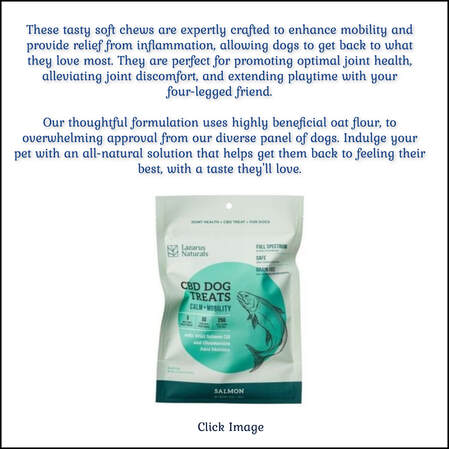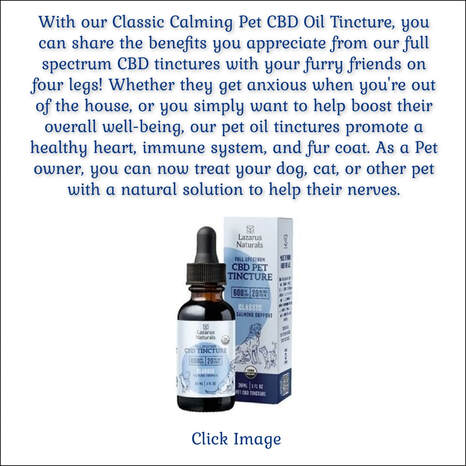I would like to add to this list, x rays of hips/spine after the age of 3 yrs old or sooner especially if there is a limping issue. ~ H.O.P.S

By Dr. Becker
March 26, 2017
Although your veterinarian can learn a great deal by performing a hands-on physical examination of your pet, there are some very important aspects of his or her health that can only be evaluated with diagnostic tests.
Some people think if their pet looks healthy and there's no change in behavior or appetite, then blood tests and other diagnostics are unnecessary. But this isn't true for pets any more than it is for people.
Almost all metabolic and organ issues that plague pets start with biochemical changes that can be picked up in blood tests weeks to years before an animal becomes sick enough to exhibit symptoms. If you wait until your pet is showing signs of disease, it may be too late to reverse the illness or cure it.
March 26, 2017
Although your veterinarian can learn a great deal by performing a hands-on physical examination of your pet, there are some very important aspects of his or her health that can only be evaluated with diagnostic tests.
Some people think if their pet looks healthy and there's no change in behavior or appetite, then blood tests and other diagnostics are unnecessary. But this isn't true for pets any more than it is for people.
Almost all metabolic and organ issues that plague pets start with biochemical changes that can be picked up in blood tests weeks to years before an animal becomes sick enough to exhibit symptoms. If you wait until your pet is showing signs of disease, it may be too late to reverse the illness or cure it.
|
Reactive Versus Proactive Pet Care
Many problems brewing beneath the surface don't produce symptoms until the disease is full-blown and, heaven forbid, even fatal. Waiting for symptoms to appear is a reactive approach. Many of us in the holistic veterinary community have clients who think they're taking a holistic approach to their pet's health when they're actually being reactive. For example, they wait until their dog is coughing to ask for a heartworm test, or until their cat is drinking tons of water and urinating constantly before they ask for a kidney function test. Allowing pets to get sick before identifying significant health issues isn't a holistic approach. The paradigm shift holistic vets are trying to encourage is a move away from reactive medicine toward proactive medicine. Proactive veterinarians focus on identifying lifestyle obstacles before disease occurs. |
Proactive Pet Care Saves Lives
If we're capable of identifying disease early and stopping it from occurring, why wouldn't we? Taking a proactive approach gives us the opportunity to address minor biochemical changes early on, and prevent them from becoming major health issues.
We can prevent organ failure if we know the body is leaning in that direction. We can prevent irreversible degeneration that robs pets of good health and long lives. But we have to know it's occurring in order to address it, and we won't know if we don't check.
I've heard countless times from clients that, "My dog was fine until he suddenly got congestive heart failure," or "My cat was fine until I took her to the vet yesterday and she was diagnosed with kidney failure." The truth is those conditions didn't develop overnight. They occurred slowly, over time.
The dog with congestive heart failure and the kitty with kidney failure have been brewing those conditions for quite a while. But because the pet parents and veterinarian weren't regularly monitoring the health of those pets, serious organ degeneration occurred right under their noses.
If we're capable of identifying disease early and stopping it from occurring, why wouldn't we? Taking a proactive approach gives us the opportunity to address minor biochemical changes early on, and prevent them from becoming major health issues.
We can prevent organ failure if we know the body is leaning in that direction. We can prevent irreversible degeneration that robs pets of good health and long lives. But we have to know it's occurring in order to address it, and we won't know if we don't check.
I've heard countless times from clients that, "My dog was fine until he suddenly got congestive heart failure," or "My cat was fine until I took her to the vet yesterday and she was diagnosed with kidney failure." The truth is those conditions didn't develop overnight. They occurred slowly, over time.
The dog with congestive heart failure and the kitty with kidney failure have been brewing those conditions for quite a while. But because the pet parents and veterinarian weren't regularly monitoring the health of those pets, serious organ degeneration occurred right under their noses.
Even if your vet isn't proactive, you can be. Ask him or her to measure your pet's vital organ function with the appropriate diagnostic tests. You're entitled to a copy of the results, which you can review and keep track of from one year to the next, taking note of any changes that occur.
If you have no choice but to visit a reactive versus a proactive veterinarian, you'll need to act as your pet's advocate. Don't ever be afraid to speak up on behalf of your animal companion.
Keep in mind that most abnormal test results were once normal. It's how quickly we catch the change from normal to abnormal that can mean the difference between fixing a problem early, or potentially losing a pet to a disease we could have identified early on.
"I wish I would have known," is something no proactive vet ever wants to say or hear. Put another way, "I wish I would have known," means, "I wish I would have checked."
We have the ability to check — to monitor your pet's health — and that's what I'm encouraging you to do. This is especially true for senior pets and pets with chronic health challenges.
If you have no choice but to visit a reactive versus a proactive veterinarian, you'll need to act as your pet's advocate. Don't ever be afraid to speak up on behalf of your animal companion.
Keep in mind that most abnormal test results were once normal. It's how quickly we catch the change from normal to abnormal that can mean the difference between fixing a problem early, or potentially losing a pet to a disease we could have identified early on.
"I wish I would have known," is something no proactive vet ever wants to say or hear. Put another way, "I wish I would have known," means, "I wish I would have checked."
We have the ability to check — to monitor your pet's health — and that's what I'm encouraging you to do. This is especially true for senior pets and pets with chronic health challenges.
A yearly urinalysis (or more frequently if your pet is older or prone to infections or other problems involving the urinary tract) is used to assess the overall health of your pet's urinary tract, including the kidneys and bladder, and to check for other health indicators, such as glucose regulation and liver function.
A complete urinalysis measures the function of the nephrons in the kidneys and gives information about your pet's metabolic and fluid status. The test is also used to evaluate substances in the urine that might indicate an underlying disease process.
A complete urinalysis measures the function of the nephrons in the kidneys and gives information about your pet's metabolic and fluid status. The test is also used to evaluate substances in the urine that might indicate an underlying disease process.
Blood Tests
Blood tests help your veterinarian proactively monitor your pet's internal organ health, and also help to determine causes of illnesses accurately, safely and quickly. Blood tests also allow your veterinarian to monitor the progress of medical treatments.
However, while these tests indicate where your pet's body may be having a problem, they don't tell us how or why the problem is occurring. It's also important to know that currently there are no blood tests that definitively detect cancer, and not every organ has a specific serum marker for cancer.
Complete blood count (CBC). The CBC is the most common blood test performed on pets and people. A CBC gives information on hydration status, anemia, infection, the blood's clotting ability and the ability of your pet's immune system to respond.
The CBC is essential for pets with fevers, vomiting, diarrhea, weakness, pale gums or loss of appetite. Also, in the event that your pet needs surgery, a CBC can detect bleeding disorders and other unseen abnormalities. The results of a complete blood count include:
• HCT (hematocrit) measures the percentage of red blood cells to detect anemia and dehydration
• Hb and MCHC (hemoglobin and mean corpuscular hemoglobin concentration) measure the oxygen-carrying pigments of red blood cells.
• WBC (white blood cell count) measures the body's immune cells, including lymphocytes, monocytes, neutrophils, eosinophils and basophils. Increases or decreases indicate disease or infection.
• Platelets measure cells that form blood clots.
• Retics (reticulocytes) are immature red blood cells. High levels indicate regenerative anemia; low levels indicate non-regenerative anemia.
Blood tests help your veterinarian proactively monitor your pet's internal organ health, and also help to determine causes of illnesses accurately, safely and quickly. Blood tests also allow your veterinarian to monitor the progress of medical treatments.
However, while these tests indicate where your pet's body may be having a problem, they don't tell us how or why the problem is occurring. It's also important to know that currently there are no blood tests that definitively detect cancer, and not every organ has a specific serum marker for cancer.
Complete blood count (CBC). The CBC is the most common blood test performed on pets and people. A CBC gives information on hydration status, anemia, infection, the blood's clotting ability and the ability of your pet's immune system to respond.
The CBC is essential for pets with fevers, vomiting, diarrhea, weakness, pale gums or loss of appetite. Also, in the event that your pet needs surgery, a CBC can detect bleeding disorders and other unseen abnormalities. The results of a complete blood count include:
• HCT (hematocrit) measures the percentage of red blood cells to detect anemia and dehydration
• Hb and MCHC (hemoglobin and mean corpuscular hemoglobin concentration) measure the oxygen-carrying pigments of red blood cells.
• WBC (white blood cell count) measures the body's immune cells, including lymphocytes, monocytes, neutrophils, eosinophils and basophils. Increases or decreases indicate disease or infection.
• Platelets measure cells that form blood clots.
• Retics (reticulocytes) are immature red blood cells. High levels indicate regenerative anemia; low levels indicate non-regenerative anemia.
Blood chemistry profile
Blood chemistries are common blood serum tests that evaluate your pet's organ function, electrolyte status, hormone levels and more.
They are very important in evaluating the health of older pets, pets undergoing anesthesia, pets with vomiting and diarrhea, pets that have had toxin exposure, pets on long-term medications and pets with endocrine or internal organ disease. Blood serum measures include:
ALB (albumin) is a serum protein that helps evaluate hydration, hemorrhage and intestinal, liver and kidney disease.
ALP (alkaline phosphatase) elevations may indicate liver damage, Cushing's disease, active bone growth in young pets or arthritis or bone degeneration in older pets.
ALT (alanine aminotransferase) is a sensitive indicator of active liver damage but does not indicate the cause.
A bile acids test is a paired serum sample taken before and after meals, which measures how well the liver is able to recycle bile acids.
Amylase is a digestive enzyme for carbohydrates, and lipase (LIP) is a digestive enzyme for fats. Elevations may indicate pancreatitis or other pancreatic dysfunction. The definitive test for pancreatitis is the PLI (pancreatic lipase immunoreactivity) test.
AST (aspartate aminotransferase) increases may indicate liver, heart or skeletal muscle damage.
BUN (blood urea nitrogen) indicates kidney function. An increased blood level is called azotemia and can be caused by kidney, liver or heart disease, urethral obstruction, shock or dehydration.
Ca (calcium) deviations can indicate a variety of diseases. Tumors, hyperparathyroidism, kidney disease and low albumin are just a few of the conditions that alter serum calcium.
CHOL (cholesterol) is used to supplement a diagnosis of hypothyroidism, liver disease, Cushing's disease and diabetes mellitus. Fortunately, since pets aren't plagued with arteriosclerosis like humans are, even a significant elevation in cholesterol doesn't result in blocked arteries, stroke or heart attack.
CL (chloride) is an electrolyte often lost with vomiting and Addison's disease. Elevations often indicate disease. If your pet has both sodium and chloride abnormalities, you should ask your veterinarian to check for adrenal disease.
CREA (creatinine) is a sensitive marker of kidney function and perfusion. This test helps distinguish between kidney and non-kidney causes of elevated BUN. BUN and creatinine go hand in hand. There's also a third test called the symmetric dimethylarginine (SDMA) test that can also identify early kidney disease.
Blood chemistries are common blood serum tests that evaluate your pet's organ function, electrolyte status, hormone levels and more.
They are very important in evaluating the health of older pets, pets undergoing anesthesia, pets with vomiting and diarrhea, pets that have had toxin exposure, pets on long-term medications and pets with endocrine or internal organ disease. Blood serum measures include:
ALB (albumin) is a serum protein that helps evaluate hydration, hemorrhage and intestinal, liver and kidney disease.
ALP (alkaline phosphatase) elevations may indicate liver damage, Cushing's disease, active bone growth in young pets or arthritis or bone degeneration in older pets.
ALT (alanine aminotransferase) is a sensitive indicator of active liver damage but does not indicate the cause.
A bile acids test is a paired serum sample taken before and after meals, which measures how well the liver is able to recycle bile acids.
Amylase is a digestive enzyme for carbohydrates, and lipase (LIP) is a digestive enzyme for fats. Elevations may indicate pancreatitis or other pancreatic dysfunction. The definitive test for pancreatitis is the PLI (pancreatic lipase immunoreactivity) test.
AST (aspartate aminotransferase) increases may indicate liver, heart or skeletal muscle damage.
BUN (blood urea nitrogen) indicates kidney function. An increased blood level is called azotemia and can be caused by kidney, liver or heart disease, urethral obstruction, shock or dehydration.
Ca (calcium) deviations can indicate a variety of diseases. Tumors, hyperparathyroidism, kidney disease and low albumin are just a few of the conditions that alter serum calcium.
CHOL (cholesterol) is used to supplement a diagnosis of hypothyroidism, liver disease, Cushing's disease and diabetes mellitus. Fortunately, since pets aren't plagued with arteriosclerosis like humans are, even a significant elevation in cholesterol doesn't result in blocked arteries, stroke or heart attack.
CL (chloride) is an electrolyte often lost with vomiting and Addison's disease. Elevations often indicate disease. If your pet has both sodium and chloride abnormalities, you should ask your veterinarian to check for adrenal disease.
CREA (creatinine) is a sensitive marker of kidney function and perfusion. This test helps distinguish between kidney and non-kidney causes of elevated BUN. BUN and creatinine go hand in hand. There's also a third test called the symmetric dimethylarginine (SDMA) test that can also identify early kidney disease.
GLOB (globulin) is a blood protein that often increases with chronic inflammation and decreases with chronic infections and a weakened immune system.
GLU (glucose) is blood sugar. Elevated levels may indicate diabetes mellitus or persistent hyperglycemia as the result of a carbohydrate-based diet. Low levels (below 40) can cause collapse, seizures or coma.
K (potassium) is an electrolyte lost with vomiting, diarrhea or excessive urination. Increased levels may indicate kidney failure, Addison's disease, dehydration, urethral obstruction or inappropriate doses of certain drugs. High levels can cause heart problems.
Na (sodium) is an electrolyte lost with vomiting, diarrhea, kidney and Addison's disease. This test helps indicate hydration status.
PHOS (phosphorus) elevations are often associated with kidney disease, hyperthyroidism and bleeding disorders.
TBIL (total bilirubin) elevations may indicate liver or hemolytic disease. This test helps identify bile duct problems, gall bladder stasis and certain types of anemia.
TP (total protein) indicates hydration status and provides additional information about the liver, kidneys and infectious disease.
T4 (thyroxine) is a thyroid hormone. Decreased levels often signal hypothyroidism in dogs, while high levels indicate hyperthyroidism, commonly diagnosed in cats. A complete thyroid panel is necessary to accurately assess thyroid health.
GLU (glucose) is blood sugar. Elevated levels may indicate diabetes mellitus or persistent hyperglycemia as the result of a carbohydrate-based diet. Low levels (below 40) can cause collapse, seizures or coma.
K (potassium) is an electrolyte lost with vomiting, diarrhea or excessive urination. Increased levels may indicate kidney failure, Addison's disease, dehydration, urethral obstruction or inappropriate doses of certain drugs. High levels can cause heart problems.
Na (sodium) is an electrolyte lost with vomiting, diarrhea, kidney and Addison's disease. This test helps indicate hydration status.
PHOS (phosphorus) elevations are often associated with kidney disease, hyperthyroidism and bleeding disorders.
TBIL (total bilirubin) elevations may indicate liver or hemolytic disease. This test helps identify bile duct problems, gall bladder stasis and certain types of anemia.
TP (total protein) indicates hydration status and provides additional information about the liver, kidneys and infectious disease.
T4 (thyroxine) is a thyroid hormone. Decreased levels often signal hypothyroidism in dogs, while high levels indicate hyperthyroidism, commonly diagnosed in cats. A complete thyroid panel is necessary to accurately assess thyroid health.
Tests for Tick-Borne Disease
If you live in an area where ticks are abundant, I recommend asking your veterinarian for an annual or even twice-a-year SNAP-4Dx test or an Accuplex test to check for tick-borne diseases, including heartworm, Lyme disease, ehrlichiosis and anaplasmosis. Regardless of what you do to manage fleas and ticks on your pets, research shows mosquitoes can transmit tick-borne diseases, and none of us can completely prevent mosquito bites.
Especially in the midwest and the east coast of the U.S., it's a good idea early in the year and at the end of tick season to check for tick-borne illnesses, which thankfully are fairly easy to treat and cure when they are identified before they create chronic disease.
If you live in an area where ticks are abundant, I recommend asking your veterinarian for an annual or even twice-a-year SNAP-4Dx test or an Accuplex test to check for tick-borne diseases, including heartworm, Lyme disease, ehrlichiosis and anaplasmosis. Regardless of what you do to manage fleas and ticks on your pets, research shows mosquitoes can transmit tick-borne diseases, and none of us can completely prevent mosquito bites.
Especially in the midwest and the east coast of the U.S., it's a good idea early in the year and at the end of tick season to check for tick-borne illnesses, which thankfully are fairly easy to treat and cure when they are identified before they create chronic disease.
Titer Testing and Vaccinations
I also recommend titer testing in lieu of automatic re-vaccination for all diseases other than rabies, which of course is required by law. Titer tests are simple blood tests you can ask your veterinarian to do that provide information about your pet's current immunity to the diseases he's been vaccinated against in the past.
Immunologist Dr. Ron Schultz states that any positive titer result — any number above zero — means your pet's immune system is capable of mounting an effective response and no vaccine is needed.
Some of my clients say, "Hey, I think it's just cheaper to vaccinate. My dog has only had one vaccine. What's the harm in doing it?" My response is it's much safer to titer test, even in pets who've only had one vaccination, because chances are they're protected for life and don't need additional vaccines.
If the titer is low, I will give the vaccine at no charge. I give a single parvo or distemper vaccine if a dog's titer is low. I don't give combination vaccines. In 19 years, I've never given a free vaccine because none of my patients have titered low after their puppy shots. So this is something to keep in mind when it comes to re-vaccinating your pet.
I also recommend titer testing in lieu of automatic re-vaccination for all diseases other than rabies, which of course is required by law. Titer tests are simple blood tests you can ask your veterinarian to do that provide information about your pet's current immunity to the diseases he's been vaccinated against in the past.
Immunologist Dr. Ron Schultz states that any positive titer result — any number above zero — means your pet's immune system is capable of mounting an effective response and no vaccine is needed.
Some of my clients say, "Hey, I think it's just cheaper to vaccinate. My dog has only had one vaccine. What's the harm in doing it?" My response is it's much safer to titer test, even in pets who've only had one vaccination, because chances are they're protected for life and don't need additional vaccines.
If the titer is low, I will give the vaccine at no charge. I give a single parvo or distemper vaccine if a dog's titer is low. I don't give combination vaccines. In 19 years, I've never given a free vaccine because none of my patients have titered low after their puppy shots. So this is something to keep in mind when it comes to re-vaccinating your pet.
Additional Recommendations
Three other tests to consider are a fasting insulin test, a vitamin D test and a dysbiosis test.
• Fasting insulin test. In humans, one of the best predictors of longevity is the fasting insulin level. Very few veterinarians measure this, but I think it's an underutilized test that can evaluate a patient's metabolic health and fat-burning adaptedness. Michigan State Diagnostic Lab runs this test for $18. In my opinion, it's one of the best things you can do to evaluate your pet's ability to manage metabolic diseases, including cancer.
• Vitamin D test. Vitamin D deficiency is an epidemic, and we're beginning to learn that deficiency in pets may rival that of humans. Dogs and cats can't make vitamin D from sunlight so they must get it from their diet.
Unfortunately, the synthetic vitamin D used in many commercial pet foods can be difficult for dogs and cats to absorb and unless impeccably balanced, many homemade diets are deficient in vitamin D. Vitamin D testing is an add-on to routine bloodwork, but you can ask your veterinarian to include it.
Three other tests to consider are a fasting insulin test, a vitamin D test and a dysbiosis test.
• Fasting insulin test. In humans, one of the best predictors of longevity is the fasting insulin level. Very few veterinarians measure this, but I think it's an underutilized test that can evaluate a patient's metabolic health and fat-burning adaptedness. Michigan State Diagnostic Lab runs this test for $18. In my opinion, it's one of the best things you can do to evaluate your pet's ability to manage metabolic diseases, including cancer.
• Vitamin D test. Vitamin D deficiency is an epidemic, and we're beginning to learn that deficiency in pets may rival that of humans. Dogs and cats can't make vitamin D from sunlight so they must get it from their diet.
Unfortunately, the synthetic vitamin D used in many commercial pet foods can be difficult for dogs and cats to absorb and unless impeccably balanced, many homemade diets are deficient in vitamin D. Vitamin D testing is an add-on to routine bloodwork, but you can ask your veterinarian to include it.
• Dysbiosis test. We know that 70 percent of the immune system is located in your dog's or cat's gut, and many pets suffer from gut-related disorders that create malabsorption, maldigestion and ultimately, a weakened and dysfunctional immune system.
Identifying and addressing a leaky or dysbiotic gut is critically important in re-establishing good health, especially in debilitated, chronically ill and aging pets. The Texas A&M Gastrointestinal Laboratory has just released a test to measure the level of dysbiosis in the canine gut.
The takeaway today is that monitoring a pet's internal environment is actually quite empowering, because we're able to address minor changes before disease occurs, and in many cases we can prevent degeneration, which is always our goal as proactive pet parents and veterinarians.
Identifying and addressing a leaky or dysbiotic gut is critically important in re-establishing good health, especially in debilitated, chronically ill and aging pets. The Texas A&M Gastrointestinal Laboratory has just released a test to measure the level of dysbiosis in the canine gut.
The takeaway today is that monitoring a pet's internal environment is actually quite empowering, because we're able to address minor changes before disease occurs, and in many cases we can prevent degeneration, which is always our goal as proactive pet parents and veterinarians.




















